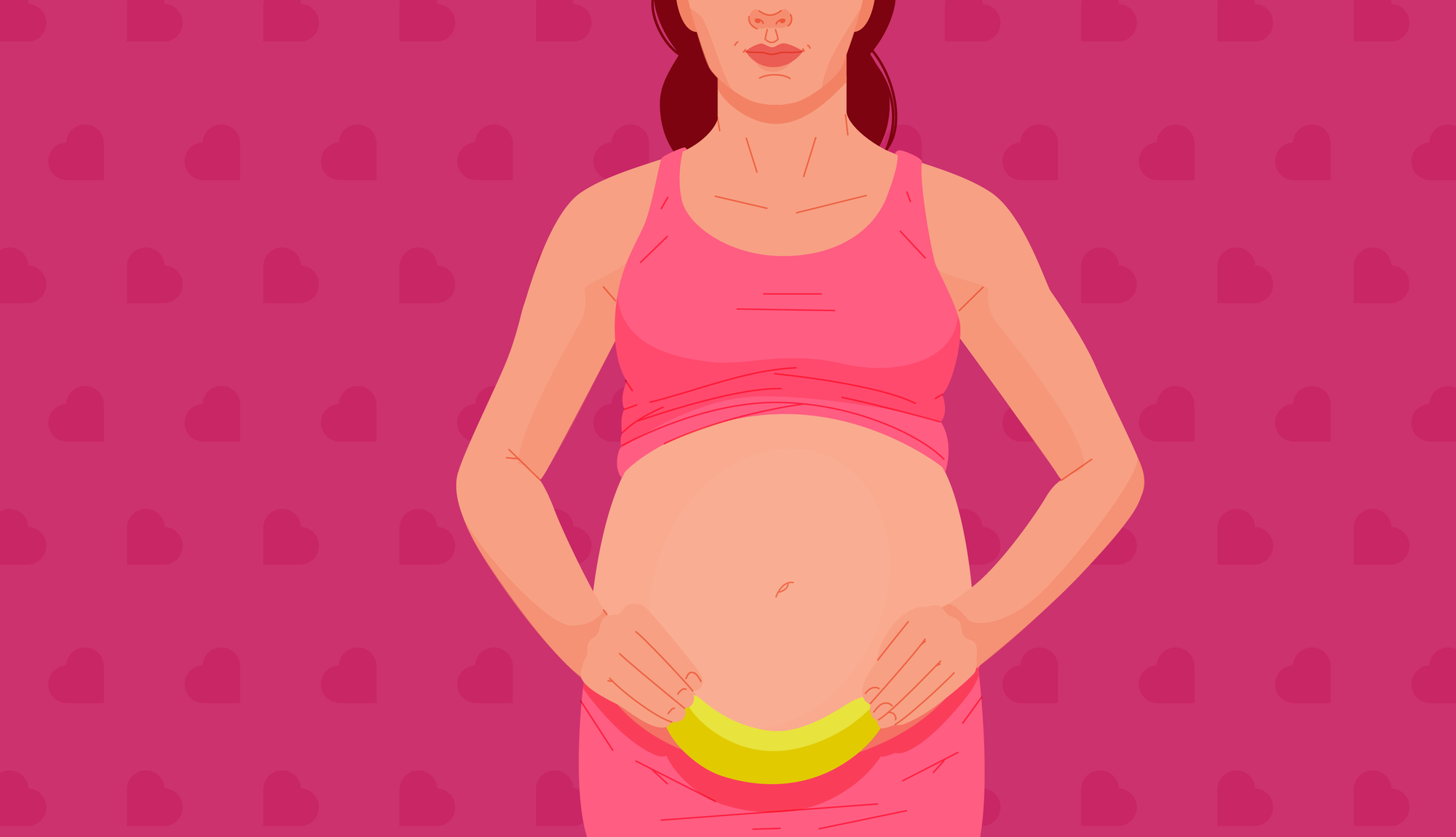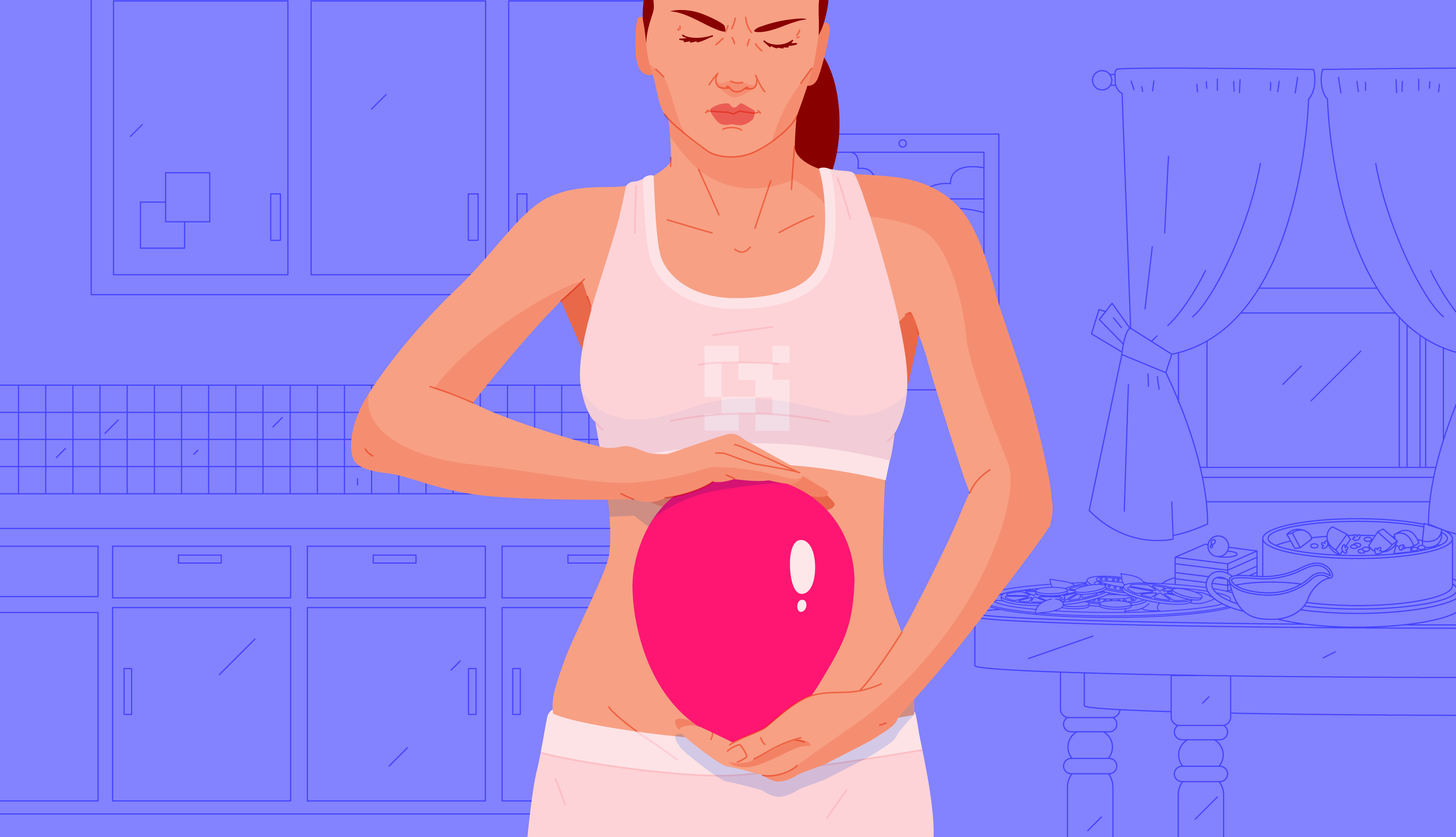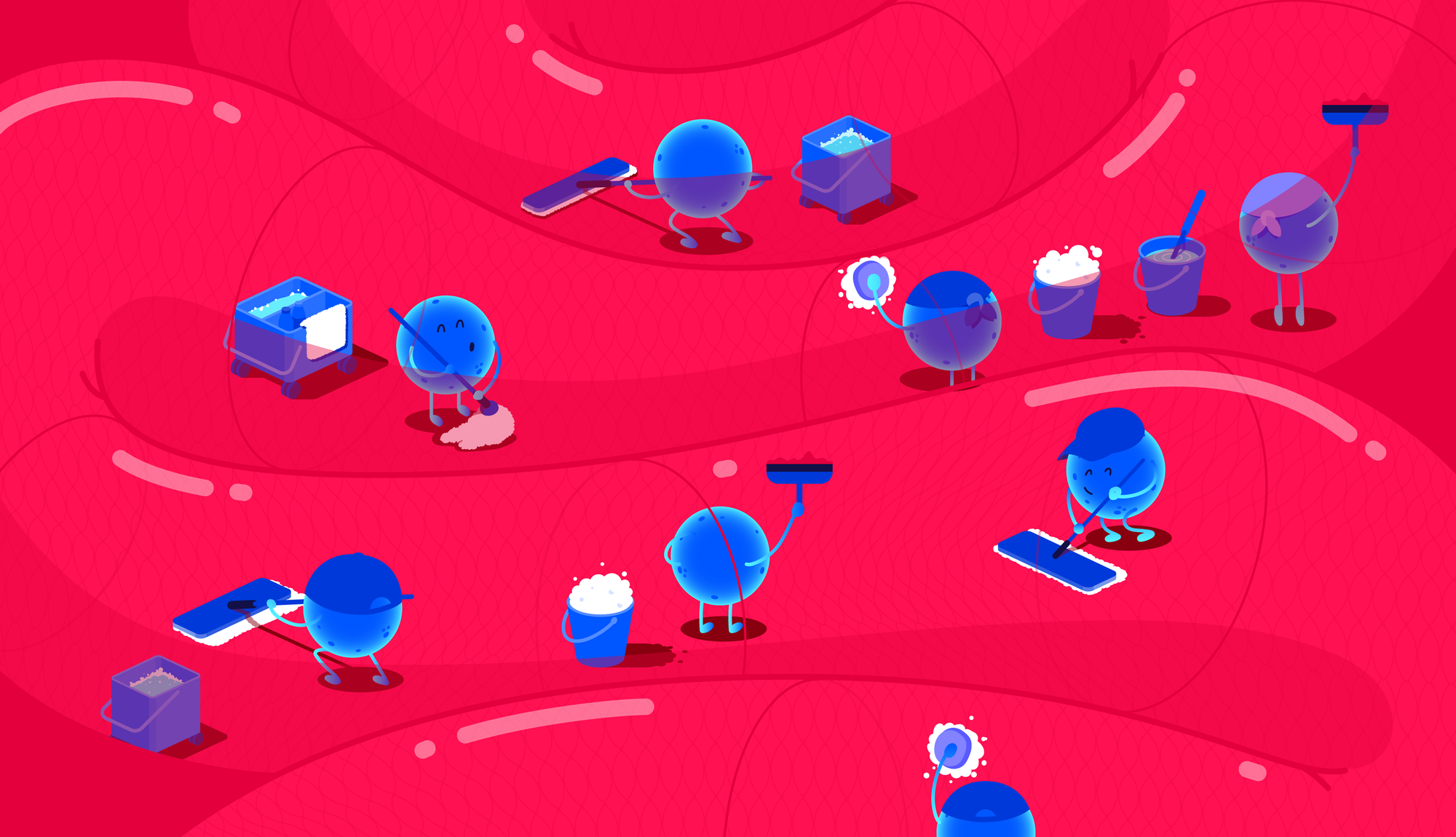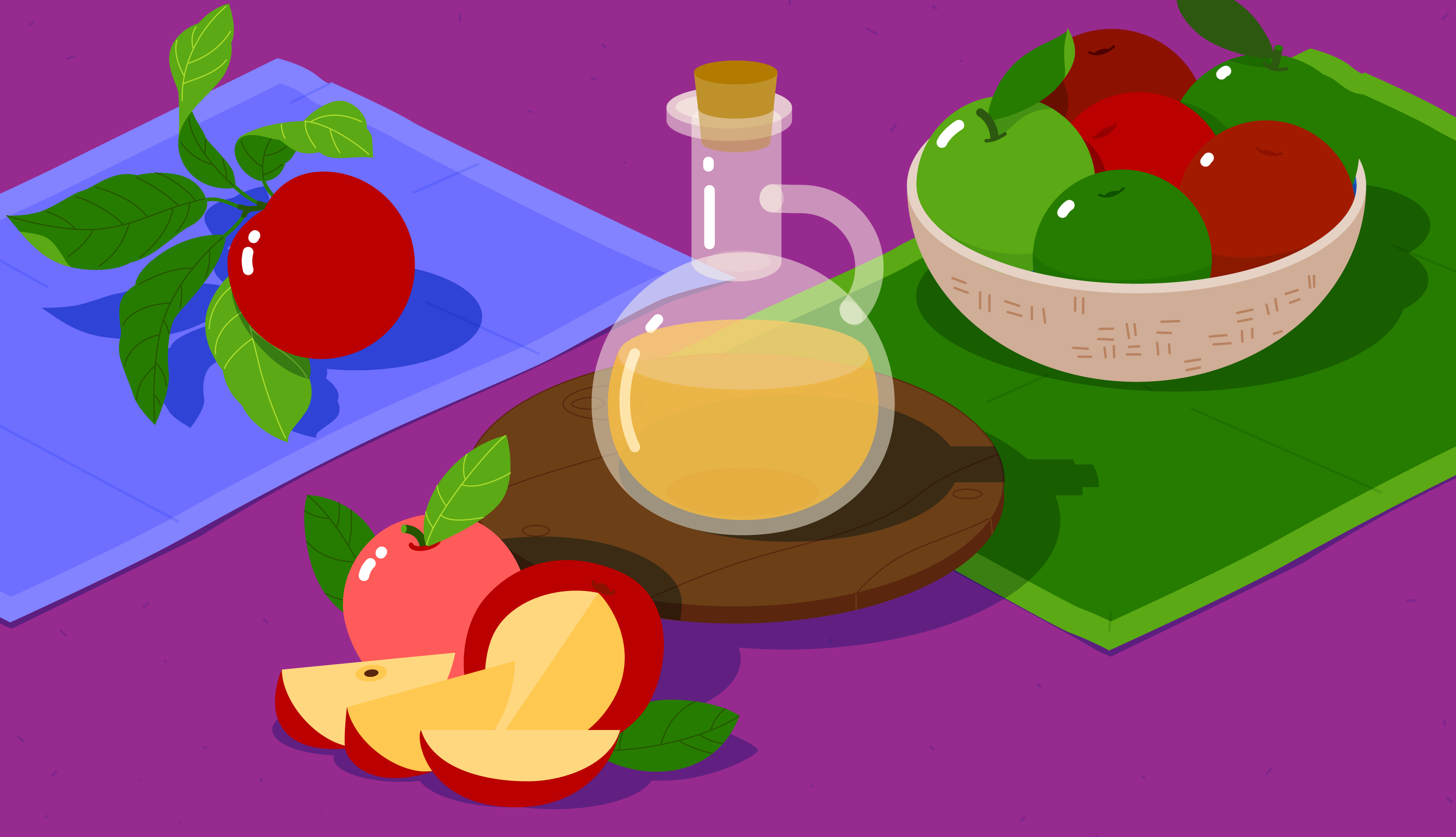The female body changes when you’re expecting. Find out what gastrointestinal problems happen during pregnancy at each trimester and how to deal with them.
Bringing a new human into the world is miraculous and exciting, but it comes with a whole bouquet of changes for the body, not in the least the digestive system which is very sensitive during this time of transition.
Table of contents
- 1. Pregnancy symptoms by trimester
- 2. Morning sickness, nausea and pregnancy
- 3.Diarrhea in early pregnancy
- 4.Upper stomach pain during pregnancy
- 5.Gastroenteritis in pregnancy
- 6.Pregnancy, gas and bloating
- 7.Constipation and pregnancy
- 8.Is it IBS or pregnancy?
Common pregnancy symptoms by trimester
A normal pregnancy term is 40 weeks, but it can range from 37 to 42 weeks. This period is divided into trimesters which reflect specific developmental milestones for the foetus. The first trimester goes from week 1 to 13, the second from week 14 to 26, and the third from week 27 to 40.
Pregnancy puts a lot of pressure on the digestive system. On the one hand, it must extract enough nutrients to nourish your body and that of a growing baby. On the other, your abdomen is put under physical pressure as the baby grows and takes up more room inside of you.
| 1st trimester | 2nd trimester | 3rd trimester |
|---|---|---|
| Week 1–13 | Week 14–26 | Week 27–40 |
| Morning sickness | Constipation | Flatulence |
| Constipation | Diarrhea | Constipation |
| Diarrhea | Acid reflux | Gallstones |
| Food cravings | Upper GI pain | Acid reflux |
| Aversions | Gallstones | Upper GI pain |
| Acid reflux | Hemorrhoids | |
| Liver problems |
Each trimester is associated with a number of changes in the body, many of which can influence the gastrointestinal (GI) system such as heartburn, nausea, diarrhea in early pregnancy, or constipation.
☝️TIP☝️Discover how your genes influence your body’s levels of female sex hormones that are essential for fertility and pregnancy with the Atlas DNA test.
Causes of gastrointestinal issues during pregnancy
Pregnancy can intensify underlying conditions, even if you weren’t aware of them before your egg got fertilised. There are a number of lifestyle and medical reasons behind gastrointestinal problems during pregnancy:
- Changes in hormones
- Obesity, sedentary lifestyle, and poor diet
- Antacids with calcium or aluminum
- Certain medications
- Viral or bacterial infection
- Food intolerances and allergies
- Stress
- Thyroid disorders
If you have chronic GI problems, like IBS (Irritable Bowel Syndrome), acid reflux, or GERD (GastroEsophogeal Reflux Disease), their symptoms will most likely intensify during pregnancy. So if you are planning a pregnancy, consult your doctor for advice.
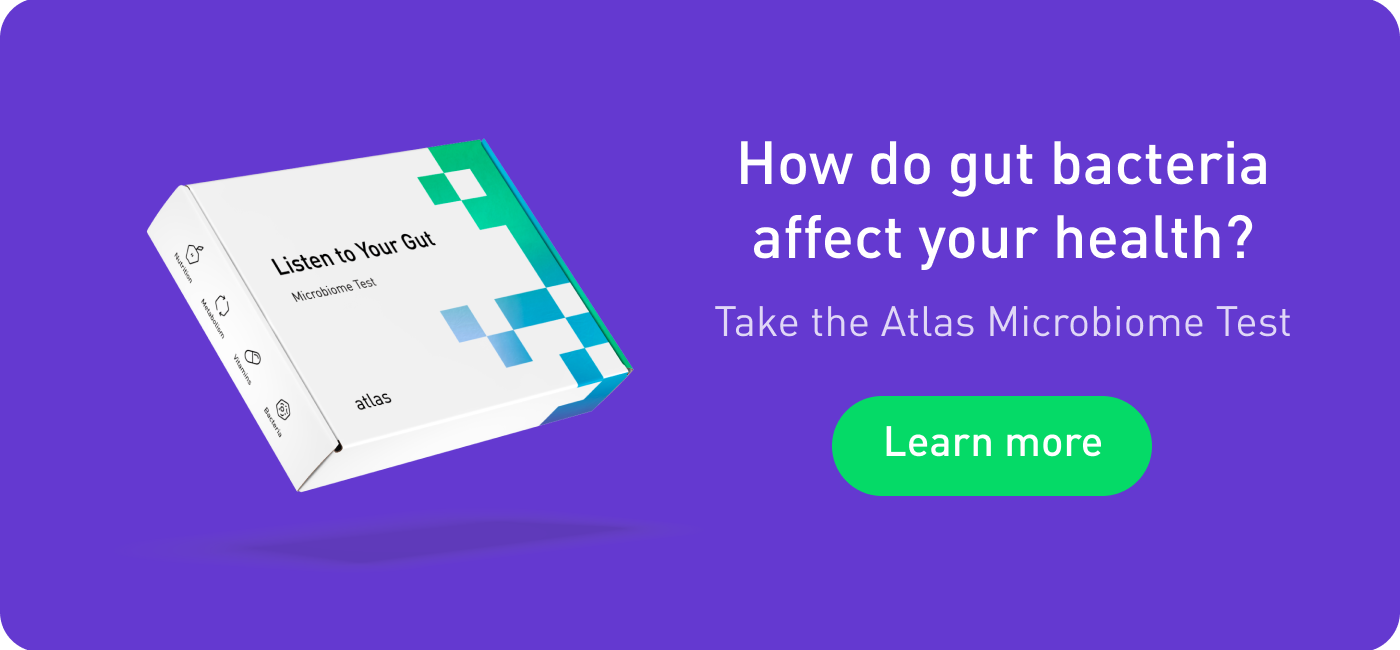
Morning sickness, nausea and pregnancy
Morning sickness and diarrhoea during pregnancy are common because your body is undergoing important hormonal shifts to accommodate the baby’s development. No matter when it happens, if you get diarrhea at 8 weeks pregnant or later, you’ll need to increase your fluid intake and monitor how long it lasts.
In particular, if you have morning sickness and diarrhea or diarrhea and vomiting in pregnancy, it may be the sign of a tummy bug (especially if you’ve recently travelled to foreign countries), so remember to stay hydrated and consult your doctor if it doesn’t clear up quickly.
☝️FACT☝️ 70–80% of pregnant women have nausea and vomiting during their first trimester that can happen any time, day or night.
What is morning sickness?
Morning sickness is characterised by nausea and stomach upset during pregnancy. It’s not quite clear why it happens, but doctors think it’s due to hormonal changes. About 8 in 10 women will be affected by morning sickness, though some worse than others. Here are some patterns associated with the increased risk of morning sickness:
- Pregnancy with twins or multiple fetuses
- History of morning sickness during pregnancy or in the family
- Women with motion sickness
- Use of oral contraceptives (estrogen)
- Frequent migraines
- BMI of 30 or more
- Elevated stress hormone levels
How to manage an upset stomach during pregnancy?
Normally morning sickness stops around weeks 16–20, but there’s no need to just suffer. Here are some tips that can help you alleviate the symptoms so you can enjoy growing a tiny human inside your body:
| Rest more (fatigue aggravates nausea) | Eat small frequent plain low-fat, high-carb meals |
| Avoid triggering foods and smells | Try ginger, some evidence shows it may help with nausea |
| Eat a slice of toast or bread before getting out of bed | Drink more still water (small frequent sips) to stay hydrated |
☝️CAUTION☝️ If you have severe uncontrolled vomiting, abdominal pain, painful or bloody urination, contact your doctor immediately!
In rare instances, pregnant women can develop severe vomiting, something doctors call hyperemesis. It is a serious condition requiring medical assistance and can cause dehydration, electrolyte disbalance, weight and muscle loss, and depletion of vitamins and minerals.
Hyperemesis affects 0.3–2.3% of all pregnancies, but it can be alleviated with some simple changes to diet and lifestyle, as well as complementary nutritional supplements and therapies like acupuncture or aromatherapy.
Diarrhea in early pregnancy

Pregnancy and diarrhea often happen together. Diarrhea in pregnancy first trimester (and second) is usually mild, but having the runs because of an upset stomach during pregnancy 3rd trimester is most common. Symptoms of diarrhea include:
- Loose watery stools 3+ times per day
- Urgent frequent need to have a bowel movement
- Abdominal cramps or pain
- Bloating
- Nausea
In daily life, reasons for diarrhea can range from bacterial and viral infections to food poisoning and medications. However, loose stools in pregnancy and diarrhea during early pregnancy are often caused by hormonal and dietary changes, stress, and underlying conditions like IBS.
That’s why, basically, first trimester diarrhea and diarrhea during pregnancy 2nd trimester may be a sign that your body is slowly working up to the 3rd trimester and labour. Occasional loose stools in early pregnancy, including diarrhea in the second trimester, and diarrhea at 16 weeks pregnant don’t mean there is anything wrong with you.
Risks of diarrhea in pregnancy
Persistent diarrhea while pregnant without proper treatment can result in dehydration, malnutrition, electrolyte disbalance, loss of weight, and it might pose a threat to your baby’s health. If you have the following symptoms, immediately get medical assistance:
- Blood or mucus in your stool
- Weight loss
- Fever
How to stop diarrhea when pregnant
If you experience diarrhea whilst pregnant, avoid foods that can make it worse, like dairy, caffeine, and anything with high fat and sugar levels. Dehydration is an important risk, so you should take steps to restore your body’s electrolyte balance with liquids and plain foods:
| Fruit juices (in moderation) | Caffeine-free soft drinks |
| Bananas | Potatoes |
| Rice | Toasts |
| Crackers | Soups |
| Pasta | Applesauce |
Digestive problems, including pregnancy diarrhea, can worsen if there are underlying conditions such as IBS, Crohn’s disease, ulcerative colitis, and celiac disease (gluten intolerance). Taking measures when planning the pregnancy is the best way to minimize the risks and side effects.
☝️REMEMBER☝️If you’ve travelled to less developed countries, diarrhea and pregnancy may be the sign of a gastrointestinal infection, so consult your doctor.
Upper stomach pain during pregnancy

Many women experience pain in the stomach while pregnant, especially the upper part. It is a normal effect of the fetus growing inside the womb, which pushes the mother’s organs around to accommodate the baby’s increasing size.
There are many reasons for pregnancy constipation pain, stomach cramps and diarrhea during early pregnancy and, realistically, throughout the full 40 weeks. Here are the most common causes of abdominal pain during pregnancy:
- Constipation
- Flatulence
- Muscle and ligament pain
- Acid reflux
- Stretching skin
- Gallbladder or liver issues
- Inflammation in the pancreas
- Injury of the spleen
- Appendix
- Labour contractions
Avoiding abdominal cramps during pregnancy is unlikely. However, regular medical check-ups, a healthy diet, restful sleep, regular exercise, and keeping your stress levels low do a lot to minimize unnecessary discomfort.
Nevertheless, abdominal pain, particularly in the 3rd trimester, should be taken seriously because it might be the sign of premature labour or placental abruption that put mother and baby at risk. If you experience severe pain in the stomach during pregnancy with these symptoms, make sure to seek immediate medical help:
| Abdominal pain accompanied by fever | Bleeding |
| Regular cramps | Unusual vaginal discharge/spotting |
| Vomiting | Lower back pain |
| Painful or burning sensation during urination | Severe pain lasting 30–60 minutes |
Gastroenteritis in pregnancy
Gastroenteritis is a fancy word for stomach flu, and it can explain why you have an upset stomach in pregnancy that leaves you under the weather for a few days. However, the symptoms are easily mistaken for morning sickness diarrhea, but there are some important distinctions.
Pregnant women with children are more likely to get gastroenteritis, especially because children tend to pick up germs at school. That’s why it’s important to take precautions, like frequent handwashing, cleaning surfaces, and not sharing cutlery or food with their infants.
Symptoms of gastroenteritis
Normally, gastroenteritis lasts about three days. However, severe gastroenteritis when pregnant should be taken seriously because it can cause dehydration and electrolyte disbalance which, if not treated properly, can cause complications such as preterm birth.
| Common symptoms of gastroenteritis | ||
|---|---|---|
| Diarrhea (without blood) | Nausea and vomiting | Stomach pain |
| Mild fever | Headache | Cramps or aching muscles |
The steps to managing gastroenteritis in pregnancy are very similar to the ones above (in the diarrhea and pregnancy section){#diarrhea-in-early-pregnancy): make sure you stay hydrated, eat plain food, and call the doctor if the symptoms persist or get very bad.
☝️REMEMBER☝️ Gastroenteritis medication may not be suitable for pregnant women. Always consult your doctor before taking anything.
Pregnancy, gas and bloating
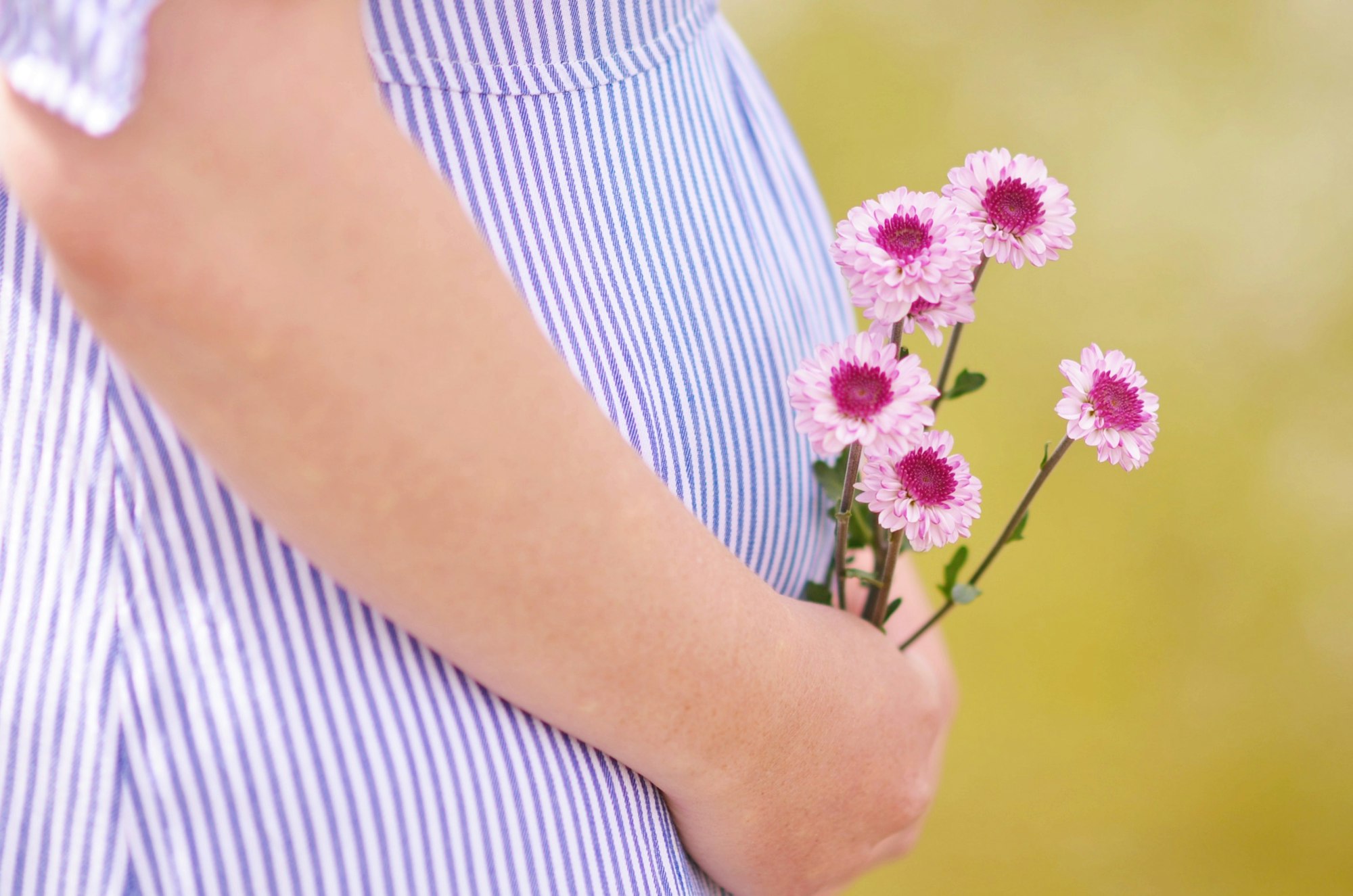
Gas during pregnancy occurs along with other gastrointestinal side effects. It may be caused by hormonal changes, like the production of more progesterone. This hormone relaxes the body’s muscles, including the intestinal ones, which slows digestion and increases flatulence.
If you have gas when pregnant, try some simple lifestyle and diet hacks to ease the pressure in your gut. Take it easy on high-fiber, hard-to-digest foods like beans, avoid fizzy drinks and fatty foods, and get out for a walk to help move things along.
☝️CAUTION☝️ If bloating is accompanied by severe pain that lasts more than 30 minutes, or you have constipation for two weeks or more, you should call your doctor.
The microbiome, gut bacteria and pregnancy
Your body undergoes a lot of changes during pregnancy, and this can affect the ecosystem of bacteria in your gut. These trillions of microbial cells do important jobs for overall health, like producing vitamins and short-chain fatty acids that keep your gut happy.
It’s important to nourish the good microbes in your colon so they can continue to support your digestion and keep everything running smoothly, because bacteria can also influence gas, bloating, diarrhea, and constipation.
The key to a happy gut microbiome is whole foods because fruit, veg, whole grains, nuts, and seeds contain special molecules called prebiotics that good bacteria feed on. They even help protect you from nasty bugs that can cause gastroenteritis during pregnancy.
With an Atlas Microbiome Test, you will discover which bacteria you have, which you lack and how to cultivate the ones you need. Based on these results, we'll calculate your risk score for five inflammatory diseases including ulcerative colitis and Crohn's.
When you purchase an Atlas Microbiome Test, you will also receive a 1-1 consultation with one of our expert nutritionists. Drawing on their wealth of experience, they can help you encourage diversity, cultivate beneficial bacteria and harness the power of a healthy microbiome.
☝️TIP☝️ See how your gut bacteria adapt to each trimester of your pregnancy with the Atlas Microbiome Test.
Constipation and pregnancy
Constipation is defined as less than three bowel movements per week. Constipation during pregnancy is caused by progesterone, the female hormone that helps the body grow a baby. Sadly, progesterone tends to relax your gut muscles, which makes it harder to go.
Constipation in pregnancy symptoms
- Hard stool
- Trouble to perform defecation
- Inability to completely empty the bowel
- Bloating and cramping
Another reason for constipation in pregnancy is that, as the fetus grows, the womb takes up more space and puts pressure on the rectum, which is the last part of your intestines. Keeping hydrated and getting enough fiber every day can help relieve this.
However, constipation pain in pregnancy may be a sign of something serious. Call your doctor if you experience constipation in pregnancy symptoms like blood in stool, weight loss, severe pain while defecating, and constipation longer than two weeks.
☝️Is constipation a symptom of pregnancy?☝️ Yes, it is caused by elevated progesterone and pressure on your intestines from the baby.
IBS and pregnancy
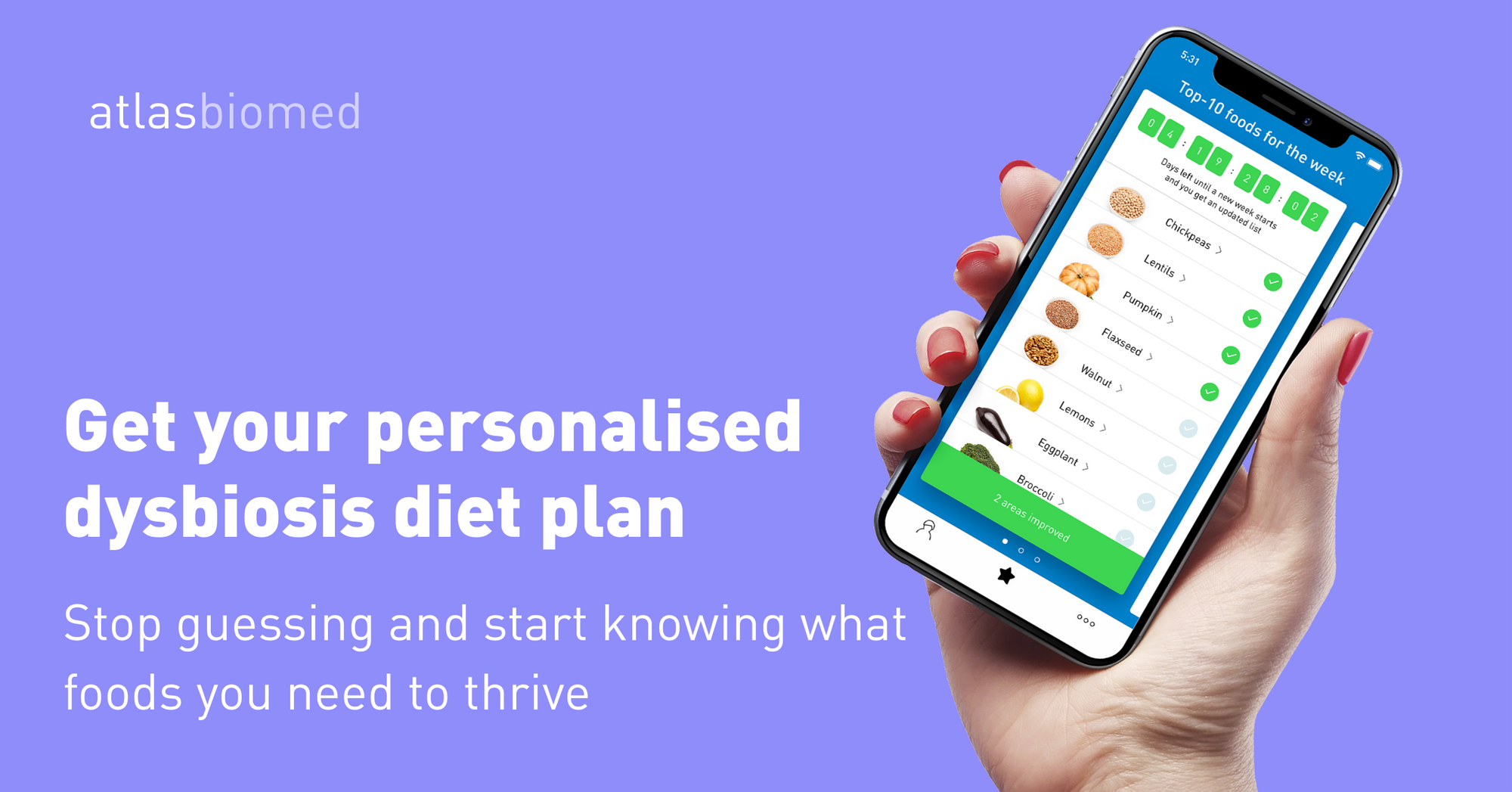
Irritable Bowel Syndrome (IBS) is a chronic condition with symptoms like cramping, abdominal pain, bloating, diarrhea, or constipation. IBS can get worse during pregnancy due to hormonal and dietary changes, and because your organs have to move to fit in a growing baby.
Word of caution, one scientific study carried out by the University College Cork with 100,000 participants found that women with IBS are at increased risk of pregnancy complications (especially in cases of smoking or depression). As a result, the authors highlight the importance of prenatal care for women with this chronic condition to ensure a safe pregnancy.
Is it pregnancy or IBS?
If you are pregnant and you can’t tell if it’s the fetus growing inside of you or your chronic digestive condition that’s acting up, here are a few tips that will help you figure out what’s going on.
The difference between ibs and pregnancy symptoms:
| IBS | Pregnancy |
|---|---|
| Bloating | Missed period |
| Abdominal cramps | Tender breasts |
| Constipation or diarrhea | Increased urination |
The final word on gastrointestinal problems and pregnancy
So, now you have all the necessary knowledge and instruments that will help you be prepared and handle the GI symptoms during pregnancy. Gastrointestinal pregnancy symptoms are quite versatile, so here are some main red flags when you must immediately get medical assistance:
- Vomiting blood
- Blood in stool during pregnancy or black stools
- Dramatic weight loss
- Severe pains that interfere with daily life
- Choking
- Pain or difficulty swallowing
- Extreme fatigue
- Mayo Clinic, Morning sickness, 2018
- Lindsey J Wegrzyniak, Treatment of Hyperemesis Gravidarum, 2012
- Edwards A. et al.,The Maternal Gut Microbiome During Pregnancy, 2018
- National Health and Safety (NHS), Vomiting and morning sickness in pregnancy
- Kudzai Kanhutu, Travel and pregnancy: an infectious diseases perspective, 2011
- CDC, Pregnant travelers
- U.S. Department of Health and Human Services, Agency for healthcare research and quality, Abdominal Pain in Early Pregnancy
- Robyn Horsager-Boehrer, M.D., UT Southwestern Medical Center, Should pregnant moms be concerned about gastroenteritis?2018
- International Foundation for Gastrointestinal Disorders, Pregnancy and Irritable Bowel Syndrome, 2016

